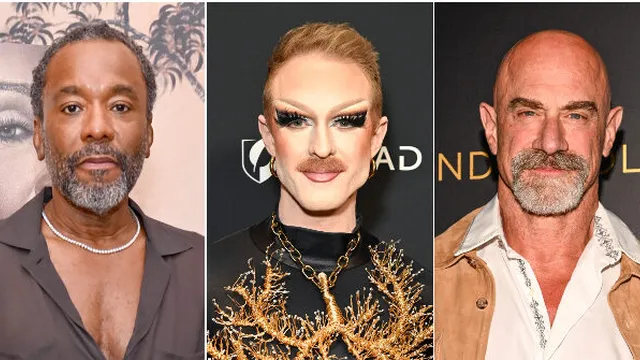
Hollywood celebrities criticize America as autocracy looms
2025-07-06 00:00- On Independence Day 2025, notable celebrities expressed dismay over America's political state through social media.
- Many individuals, including Michael Douglas, voiced concerns about the shift towards financial motivations in politics.
- The criticisms by celebrities reflect a deep-seated angst regarding the current democratic values in the country.
Express your sentiment!
Insights
On Independence Day, July 4, 2025, numerous Hollywood celebrities expressed their discontent with the current state of America through social media channels. Participants included directors and actors who questioned the meaning of Independence Day amid a political climate they viewed as deteriorating. Academy Award-winning director Lee Daniels indicated he was not celebrating this year due to feelings of sadness and frustration regarding the lack of true independence for everyone, particularly marginalized groups. This sentiment was echoed by actors like Chris Meloni and John Leguizamo, who pointed out the historical contributions of Latinos to the nation and condemned the treatment of Hispanic immigrants. During the same period, actor Michael Douglas highlighted the trend of politicians seeking profit rather than serving the public, suggesting a shift towards an autocratic government in the U.S. He remarked on the loss of idealism in politics and stressed that the struggle for democracy is not guaranteed and requires collective effort from citizens. Douglas drew parallels with historical struggles for freedom experienced by other nations. His observations were made during a press event at the Karlovy Vary International Film Festival while promoting the restored classic film, One Flew Over the Cuckoo's Nest. The discourse surrounding Independence Day was marked by a notable pessimism among many celebrities, who felt the principles of democracy and freedom that the holiday represents are being compromised. Other figures, including Rosie O'Donnell and Jon Cryer, contributed to discussions by sharing their opinions on social media, framing July 4th not as a celebration but as a reflective moment on the troubling realities facing the nation. The cumulative sentiments expressed by these influential figures raised awareness about the state of American democracy, highlighting that many view the political landscape as one dominated by profit motives and mismanagement of power, thus contributing to a general air of despair regarding the future of American society.
Contexts
In recent years, there has been a noticeable shift in democratic practices across several nations that raises concerns over the rise of autocracy. This trend poses significant challenges to established democracies and often reflects the complicated interaction between political power and societal trust. Factors contributing to this shift include economic instability, social unrest, and the growing polarization of political discourse. As citizens face challenges such as economic inequality and insecurity, they may become more inclined to support leaders who promise straightforward solutions, often at the expense of democratic norms and institutions. This phenomenon has been observed in various contexts, where populist leaders exploit public discontent to consolidate power and undermine checks and balances inherent in democratic systems. Consequently, the very fabric of democracy is threatened as governance shifts toward a more autocratic style. Moreover, the manipulation of media and information has played a pivotal role in the erosion of democratic principles. In many countries, the rise of misinformation and propaganda has fueled distrust in traditional media, leading citizens to rely on alternative information sources that often reinforce their biases. This environment not only polarizes public opinion but also allows leaders to control narratives effectively, further entrenching their power. With a decrease in independent journalism and critical discourse, the avenues that citizens traditionally rely on to hold their leaders accountable become obstructed. This decline in media freedom significantly undermines the ability of people to make informed decisions and participate meaningfully in democratic processes. Additionally, the impact of global forces cannot be overlooked. International events, such as the rise of authoritarian regimes, have influenced domestic politics in democracies around the world. Some leaders draw inspiration from successful autocratic models, promoting similar practices and policies that prioritize centralized control over participatory governance. The interconnected nature of today's political landscape means that threats to democracy in one part of the world can inspire analogous trends in others, creating a global environment where autocratic tendencies gain traction. The implications of this are profound, as the resilience of democratic institutions is tested in response to both internal and external pressures. In conclusion, the trends toward autocracy within modern democracies highlight the complexities and vulnerabilities of democratic governance. As nations grapple with the repercussions of economic challenges, the distortions of information, and global influences, the preservation of democratic values becomes increasingly critical. It is essential for citizens, political leaders, and institutions to remain vigilant and proactive in defending democracy against encroaching autocratic tendencies. Sustained efforts to promote civic engagement, protect media freedoms, and nurture democratic institutions are crucial in reversing the trend of autocratic drift and ensuring a robust democratic future.